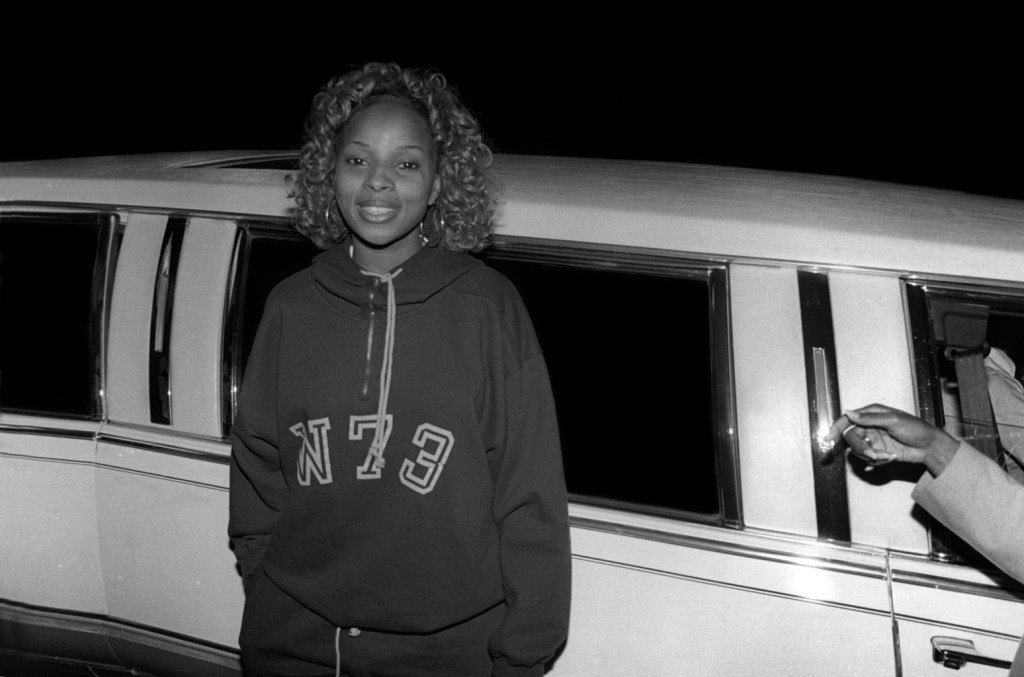Universal Music Group (UMG) is facing a lawsuit that claims a 1992 Mary J. Blige hit contained an unlicensed sample of a 1973 funk song famously sampled on dozens of other tracks, including releases by Biggie and Tupac as well as a recent Doja Cat tune.
In a complaint filed Thursday (April 4) in Manhattan federal court, Tuff City Records accused Universal Music Publishing Group (UMPG) of copyright infringement over Blige's “Real Love,” which spent 31 weeks on Hot 100 in 1992 and reached its peak. No. 7 on the chart.
The supposedly copied song? “Impeach the President” by Honey Drippers — a legendary piece of hip-hop source material with a drum track also sampled or interpolated by Run-DMC, Dr. Dre and many others. Most recently, he was featured on Doja Cat's 2023 track “Can't Wait”.
In the complaint, Tuff City's attorneys say they have “repeatedly informed the defendant of the presence of the undisclosed sample” in “Real Love,” but that Universal has done nothing about it.
“Defendant has repeatedly refused to engage Plaintiff in meaningful negotiations to remedy the above, let alone agree to indemnify Plaintiff for past breach or on an ongoing basis,” Tuff City's attorney wrote. Hillel Parness in the complaint.
Blige herself is not named in the lawsuit or accused of any wrongdoing.
In a curious wrinkle, Tuff City claims that UMG Recordings — a subsidiary of UMG and owner of the “Real Love” master — has already reached an agreement regarding the use of the unspecified sample on the recording. But they say the music giant's publishing arm refused to do the same as it relates to the underlying composition.
“The defendant's refusal to cooperate with the plaintiff is difficult to reconcile with the fact that the plaintiff reached a settlement with UMG Recordings,” Tuff City's lawyers write.
Tuff City, which owns a large catalog of old songs, is no stranger to copyright disputes. Over the past fifteen years, the company has sued over tracks by Jay-Z, Beastie Boys, Christina Aguilera, Frank Ocean and others, typically claiming they featured unauthorized samples or interference.
This process did not always go smoothly. In 2014, a judge dismissed a case over Jay-Z's “Run This Town” on the grounds that any alleged sample was “barely perceptible” after multiple hearings. In 2018, another judge ordered Tuff City to repay hundreds of thousands of dollars in legal fees the Beastie Boys spent defending a case that was “manifestly without merit.”
The new case also isn't the first time Tuff City has sued over a “President's Complaint.” In 1991, the label sued Sony Music and Def Jam over claims that producer Marley Marl had illegally sampled the track on LL Cool J's tracks “Around the Way Girl” and “Six Minutes of Pleasure”.
At the time, the lawsuit was a new legal attack on sampling, which had long been at the core of hip-hop but rarely involved paying for or seeking permission. In a 1992 article, the New York Times warned that Tuff City's “Impeach the President” lawsuit could fundamentally change hip-hop, forcing rappers and producers to clean up every element they used on their albums—a terrible idea at the time.
“A single rap album can contain dozens of samples, from single drumbeats to full musical phrases. New York Times reads the article. “Finding copyright owners, negotiating fees or royalties, and obtaining legal permission is time-consuming and can add tens of thousands of dollars to production costs.”
The Tuff City case was eventually settled on confidential terms, but it turned out to be a sign of things to come. In recent years, federal courts have ruled that almost any amount of audio sampling is considered copyright infringement. As a result, record labels and artists today try to clean up almost every direct sample in their songs, and will usually remove these elements if an agreement cannot be reached.
Of course, Blige's “Real Love” was released a few months after Tuff City filed its lawsuit against LL Cool J, and long before these practices had become universal. It's unclear why the company waited more than 30 years to sue over it, but copyright law has a so-called “rolling” statute of limitations that allows for such long-delayed actions.
A spokesman for UMG did not immediately return a request for comment.



